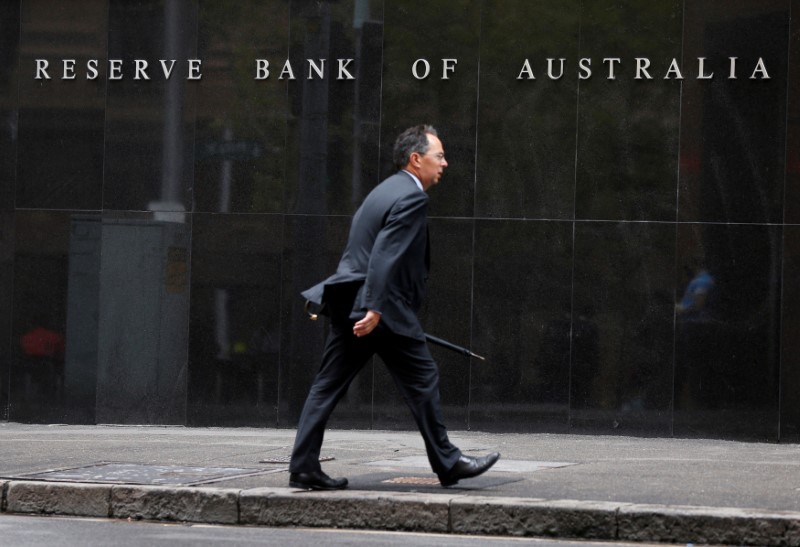(Bloomberg) -- Reserve Bank of Australia chief Philip Lowe pushed back against bond markets pricing in an earlier tightening of monetary policy, reiterating that interest rates are unlikely to rise until at least 2024 as inflation is a long way from target
“Over the past couple of weeks market pricing has implied an expectation of possible increases in the cash rate as early as late next year and then again in 2023,” Governor Lowe said in the text of a speech to the Australian Financial Review Business Summit in Sydney Wednesday. “This is not an expectation that we share.”
Lowe emphasized the evolution of the RBA’s inflation-targeting regime that now requires actual -- not forecast -- inflation to be within the 2-3% target band before considering moving rates. This likely requires wages growth to be above 3%, Lowe said, noting its currently running at a record-low 1.4%.
Australia’s central bank has stepped up its bond buying in recent weeks, including an unscheduled operation, as it battled rising yields fueled by a reflation trade sweeping global markets. The RBA defended its 0.10% yield target -- also the level of the cash rate -- and sought to sooth markets. Lowe said today that even the improved inflation expectations priced in by markets aren’t especially high and aren’t above central bank targets.
Yields were lower across the curve after the release of the speech. The yield on 10-year notes was down 5bps to 1.73% and eased 1bp on the 3-year to 0.1%. The Australia dollar was little changed, trading at 77.11 U.S. cents at 9:29 a.m. in Sydney.
Australia’s economy has experienced a V-shaped recovery as authorities managed to bring Covid-19 under control and unemployment has fallen accordingly: to 6.4% in January from a pandemic peak of 7.5%.
“Over the past decade, the estimates of the unemployment rate associated with full employment have been repeatedly lowered,” he said. Based on recent experience, “it is certainly possible that Australia can achieve and sustain an unemployment rate in the low 4s, although only time will tell.”
Staying Low
The governor reiterated the bank’s commitment to its three-year yield target and said it’s not considering removing it or changing it.
As to whether to keep April 2024 as the target three-year bond or move to November 2024, he said “the board has not yet made a decision on this question and will consider it again later in the year when it has more information about the economic recovery and the labor market.”
Later in the year, the bank will also consider whether to extend its quantitative easing program, the governor said. The RBA in November announced a A$100 billion ($77 billion) over six months targeting longer-dated securities and in February announced a further A$100 billion when the first tranche expires in mid-April.
“We are prepared to undertake further bond purchases if that is required to reach our goals, Lowe said. “Until then, we remain prepared to alter the timing of purchases under the current programs in response to market conditions. We did this last week when liquidity conditions deteriorated and bid-ask spreads widened noticeably, and will do so again if necessary.”
The governor, referring to strengthening house prices, said there are mechanisms to limit lending that don’t require tighter policy. He said the RBA is paying close attention to lending standards, but it does not target house prices, “nor would it make sense to do so.”
(Updates with market reaction in fifth paragraphs)
©2021 Bloomberg L.P.
